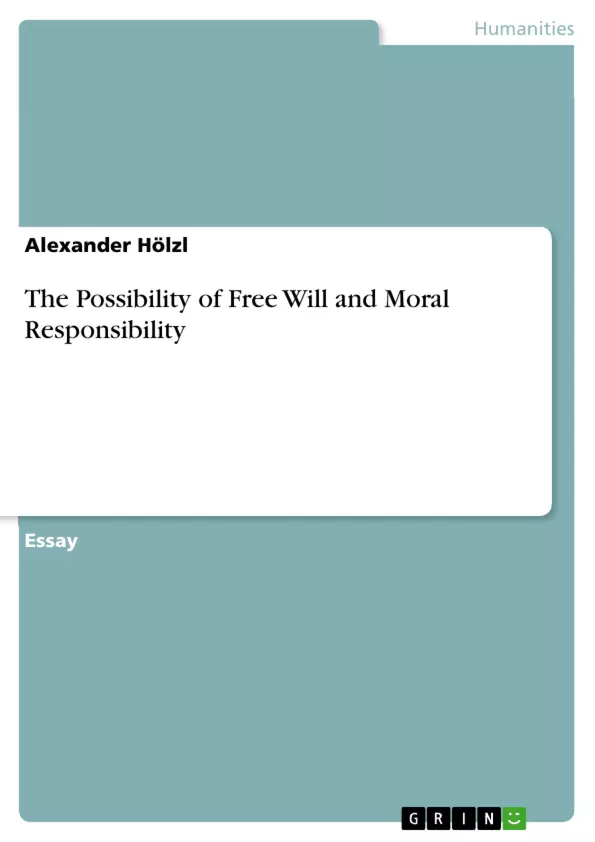This essay aims to argue against the common claim of philosophers and scientists that free will is just an illusion. My general thesis is that it is possible that we have a free will – and that we are morally responsible for our actions – if we understand free will as a potentiality that can be actualized – or not.
Inhaltsverzeichnis (Table of Contents)
- Definitions and basic assumptions
- The 2 metaphysical pre-conditions of free will
- Free will and the “causa sui”
- Reflection on the illusion of free will
Zielsetzung und Themenschwerpunkte (Objectives and Key Themes)
This essay aims to refute the prevalent notion among philosophers and scientists that free will is merely an illusion. The central thesis argues for the possibility of free will, understood as a potential that can be actualized or not, and the resulting moral responsibility for our actions.
- The nature and definition of free will and moral responsibility
- The metaphysical preconditions for free will, including the concept of "causa sui"
- The role of causality and determinism in the context of free will and moral responsibility
- The implications of free will for moral responsibility and the justification of blame, praise, and punishment
- The critique of naturalistic arguments that claim free will is an illusion
Zusammenfassung der Kapitel (Chapter Summaries)
- Definitions and basic assumptions: This chapter introduces key terms like action, moral responsibility, free will, and determinism, defining them in the context of the essay's argument. It also outlines the basic assumptions upon which the essay's arguments are based.
- The 2 metaphysical pre-conditions of free will: This chapter lays out the foundational metaphysical arguments for the possibility of free will. It introduces the concepts of "causa sui" (being the cause of oneself) and the non-reducible nature of human beings and their actions.
- Free will and the “causa sui”: This chapter explores the "causa sui" argument in detail, analyzing the limitations of naturalistic explanations for human action and arguing for the necessity of a different form of causation. It utilizes the example of SS-officers during World War II to illustrate how different forms of causality might explain moral responsibility.
Schlüsselwörter (Keywords)
The main keywords and focus topics of this essay include free will, moral responsibility, "causa sui," determinism, causality, naturalism, metaphysics, moral obligation, blame, praise, punishment, and the illusion of free will.
Frequently Asked Questions
Is free will considered an illusion in this essay?
No, the essay argues against the common claim that free will is just an illusion, positing it instead as a potentiality that can be actualized.
What does the concept of "causa sui" mean in the context of free will?
"Causa sui" refers to being the cause of oneself, a metaphysical pre-condition discussed as necessary for the existence of free will.
How does determinism relate to moral responsibility?
The essay explores whether determinism and causality leave room for moral responsibility and the justification of praise or punishment.
What example is used to illustrate moral responsibility?
The essay utilizes the example of SS-officers during World War II to discuss different forms of causality and moral accountability.
What are the metaphysical pre-conditions for free will?
The essay outlines foundational metaphysical arguments, including the non-reducible nature of human beings and their actions.
- Arbeit zitieren
- Alexander Hölzl (Autor:in), 2018, The Possibility of Free Will and Moral Responsibility, München, GRIN Verlag, https://www.grin.com/document/496772



